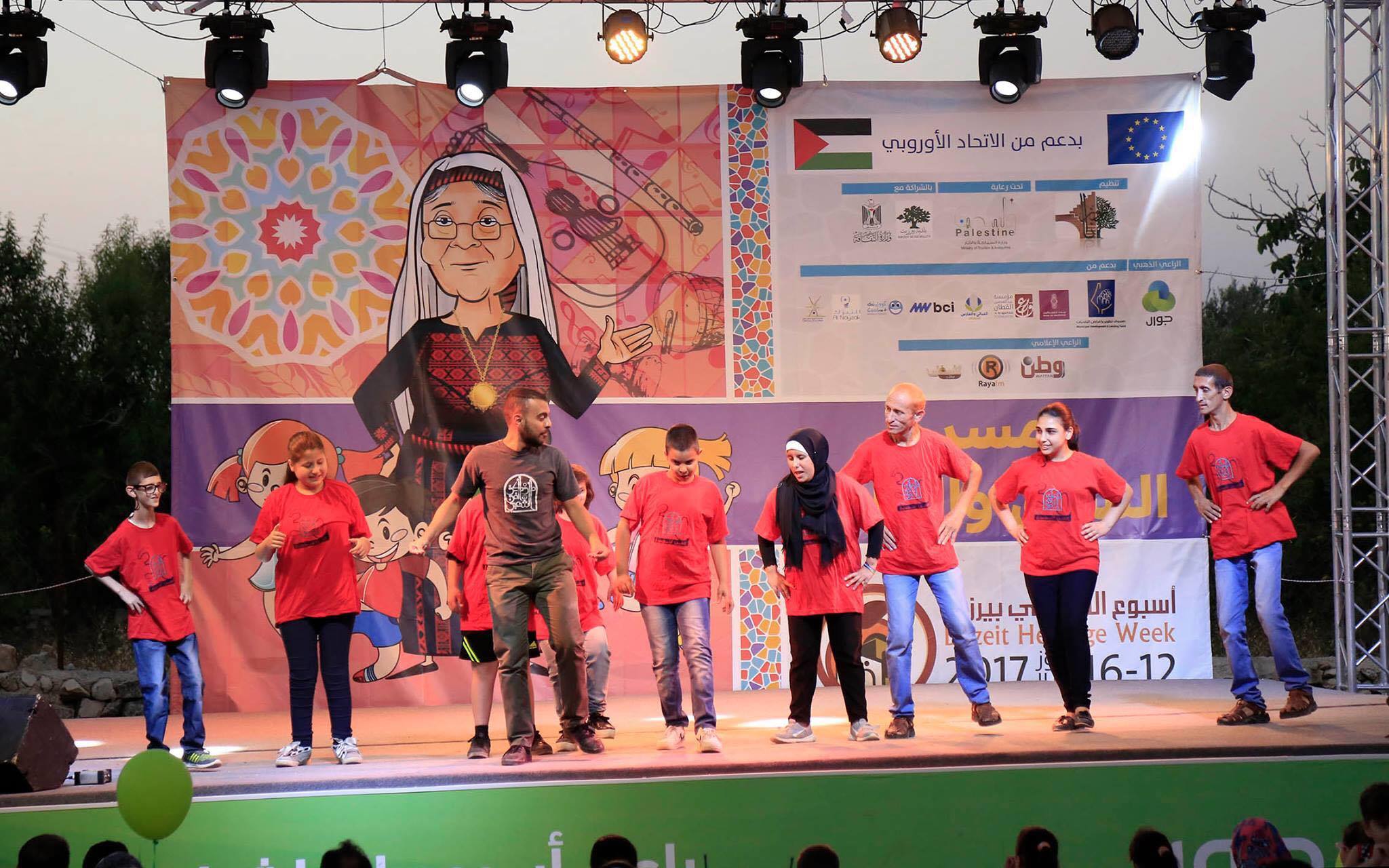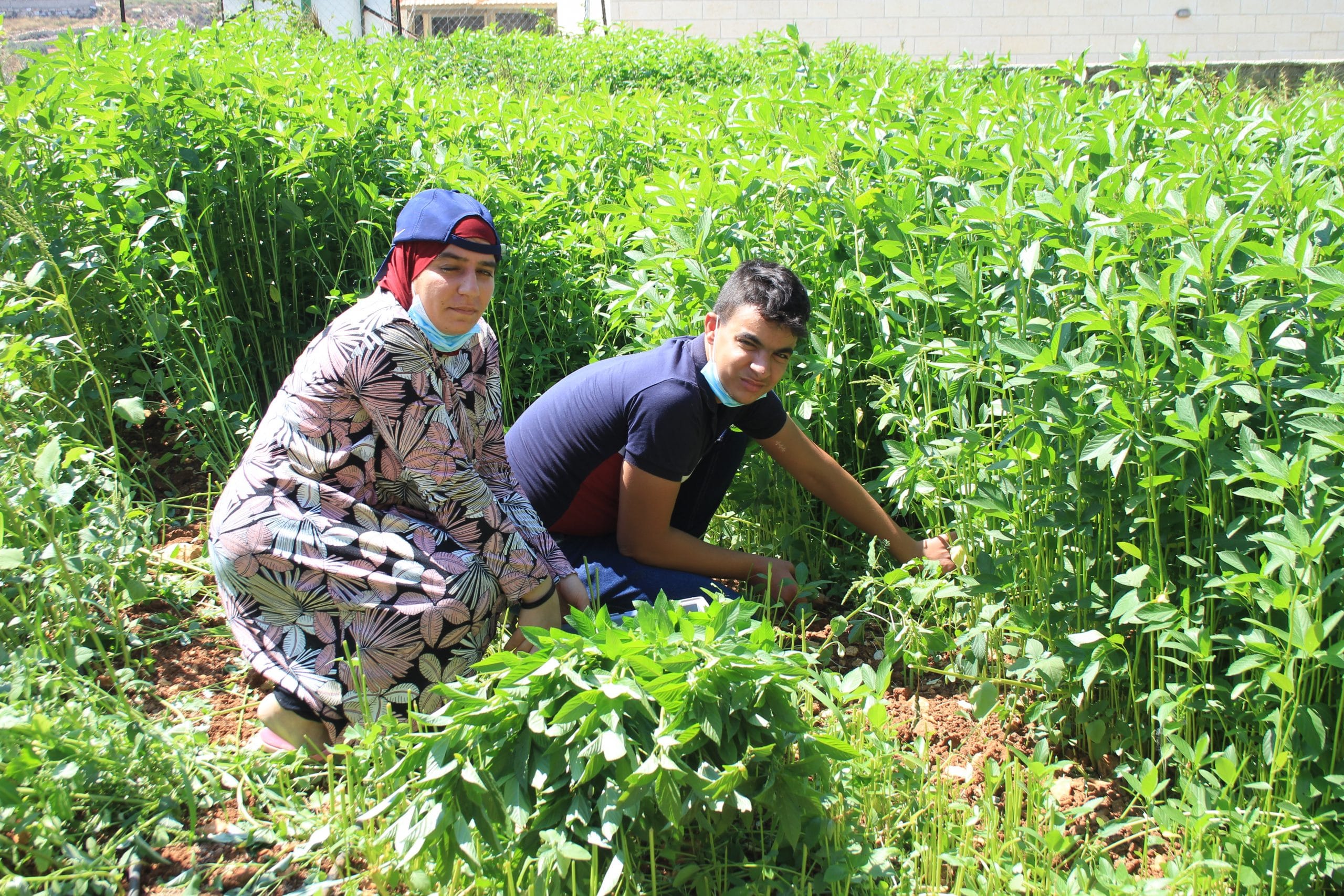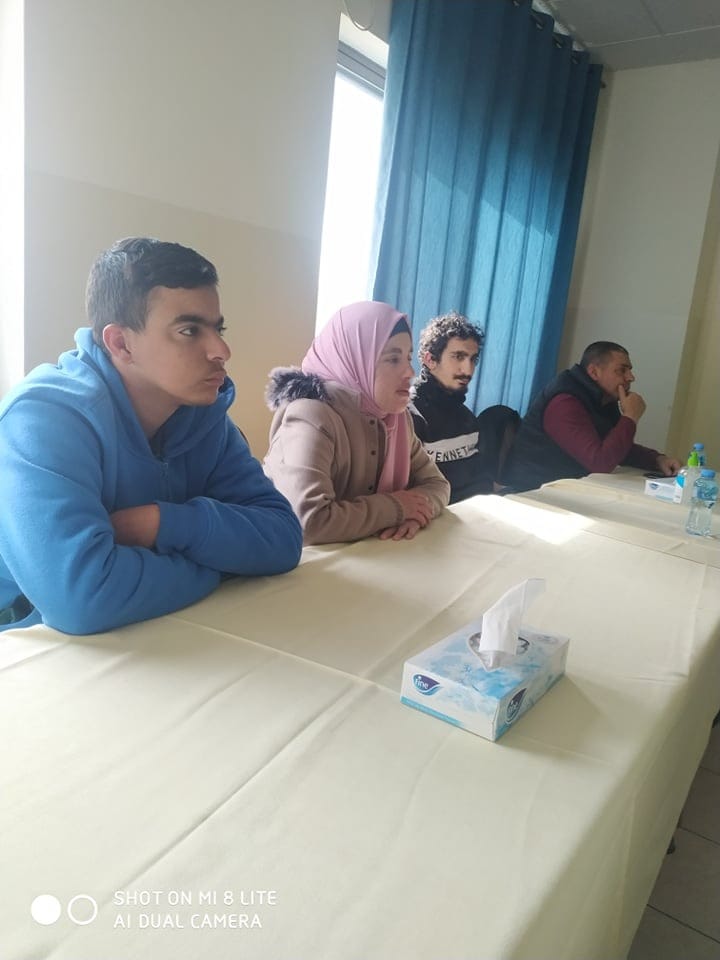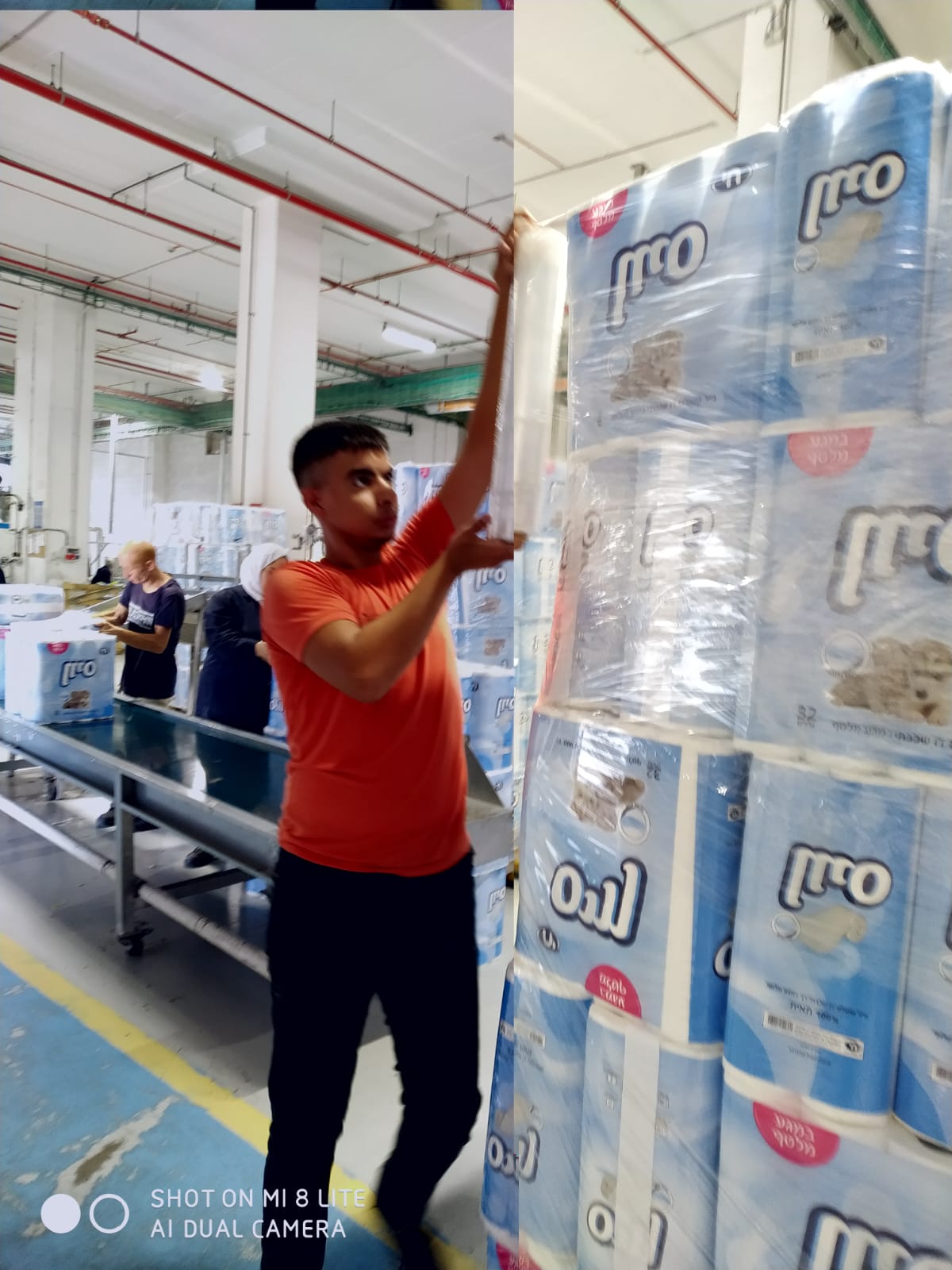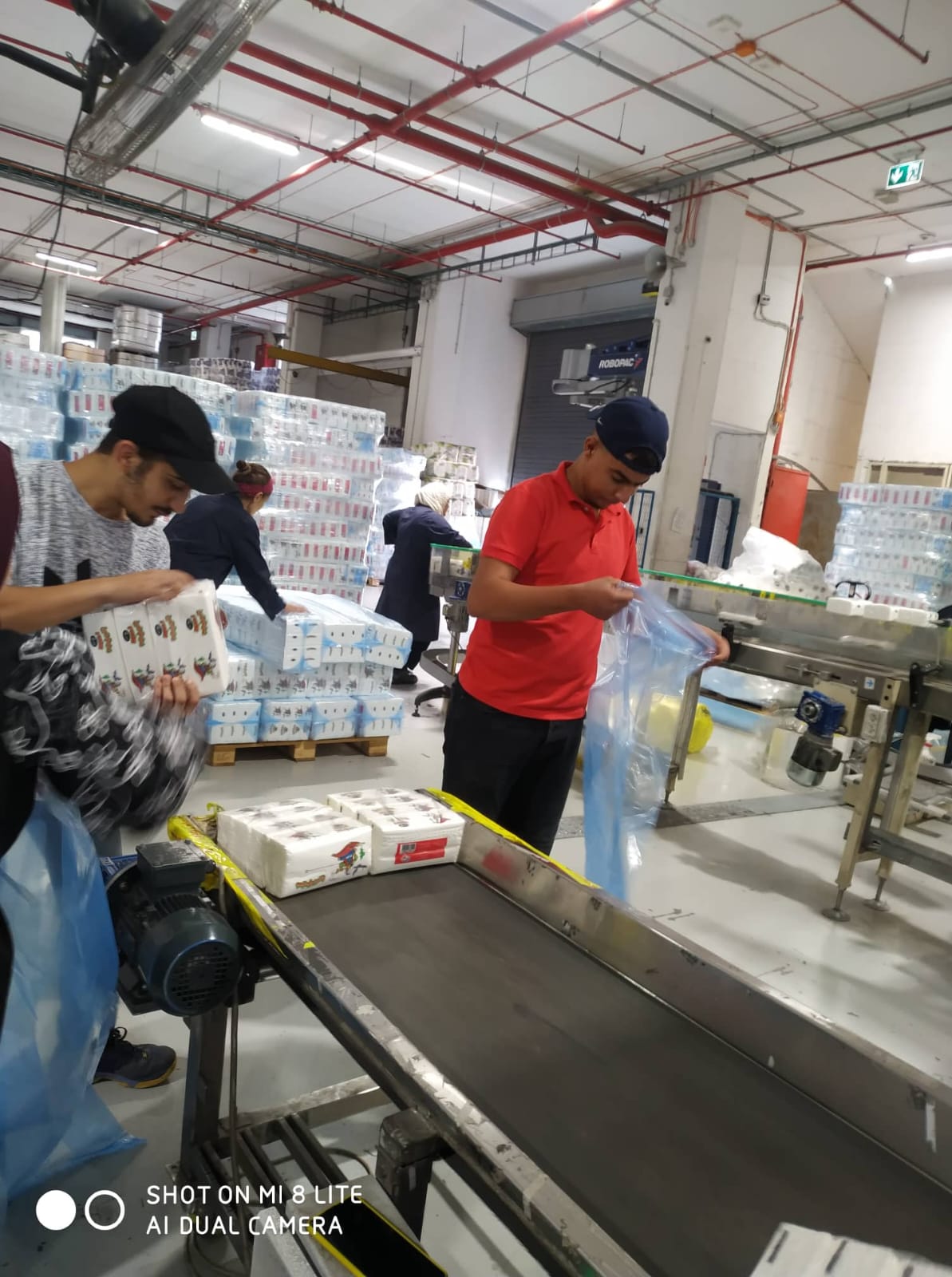The chance to live a full life: Omar’s story
For three years now, the knodel foundation has been supporting the Star Mountain Rehabilitation Center (SMRC) in Palestine. Amidst the ever more challenging conditions caused by the Israeli occupation, the team led by Director Ranya Karam is committed to the rights and needs of young people with disabilities. Ranya Karam demonstrates the fruits of this tireless effort through Omar’s story.
Omar lives in Ajoul village, north or Ramallah, together with his elderly parents and three sisters. Nearly ten years ago, Omar’s mother brought him to the Star Mountain Rehabilitation Center (SMRC) because he couldn’t communicate or take care of himself. Initially, it was believed that Omar had a dysfunctional thyroid gland and required medication for that and his nervous system. However, after a few months of working with Omar, it became clear that the diagnosis was incorrect.
Under the guidance of specialists at SMRC, Omar received an individualized plan. As a first step, the speech therapist referred him to the Ministry of Health for a simple tongue operation that enabled him to start speaking. The team then focused on improving the boy’s daily life skills and academic knowledge. Additionally, the psychosocial specialist discovered that Omar had experienced sexual molestation due to spending time on the streets. Consequently, the team worked intensively with him to teach self-protection and build self-confidence. Within a couple of years, Omar joined the Child Protection Network, advocating for the rights of children with disabilities. Omar also became a member of SMRC’s acrobatic and traditional dance teams.
When he turned 14, it was time for him to transition from our school to the vocational training program. There, he received training in various skills such as housekeeping, farming, cooking, using public transport, and managing his essential needs. Throughout his time at SMRC, Omar’s performance was outstanding. Three months before turning 18, SMRC arranged a training opportunity for him at a sanitary paper factory. Since the beginning of 2023, Omar has been employed at the factory, fulfilling his dream of having a job and supporting his family.
A few months prior to finding the training opportunity, I met Omar on his way to the vocational training center. He greeted me with a warm smile and his usual cheerful demeanor. I offered him some plums, and although he wasn’t fond of them, he kindly accepted one, saying, “I’m not a fan of plums, but for you, I will take one.” This was the same Omar who struggled to form sentences a decade ago, now engaging in considerate conversations with a joyful expression.
SMRC caters to approximately 90 students aged three months to 40 years. They are divided into inclusive kindergarten, school, and vocational training programs, where they receive intensive rehabilitation and training. These programs include speech therapy, physiotherapy, occupational therapy, psychosocial therapy, daily life skills training, basic education, and various social and extracurricular activities, all for a nominal fee.
For many students, SMRC represents the only opportunity to leave their homes, interact with the outside world, and feel connected to the community. In the West Bank, around 5,000 children with intellectual disabilities lack access to similar services due to financial constraints and limited availability of nearby rehabilitation centers. In the Gaza Strip, the situation is similar.
SMRC’s core funding from the Herrnhuter Missionshilfe covers only 25% of its costs. The high cost of living in the Palestinian Territories exacerbates this financial gap, prompting SMRC to constantly seek additional sources of funding. For the past three years, the knodel foundation has stepped in to provide continuous funding, without which SMRC would be unable to sustain its school program.
